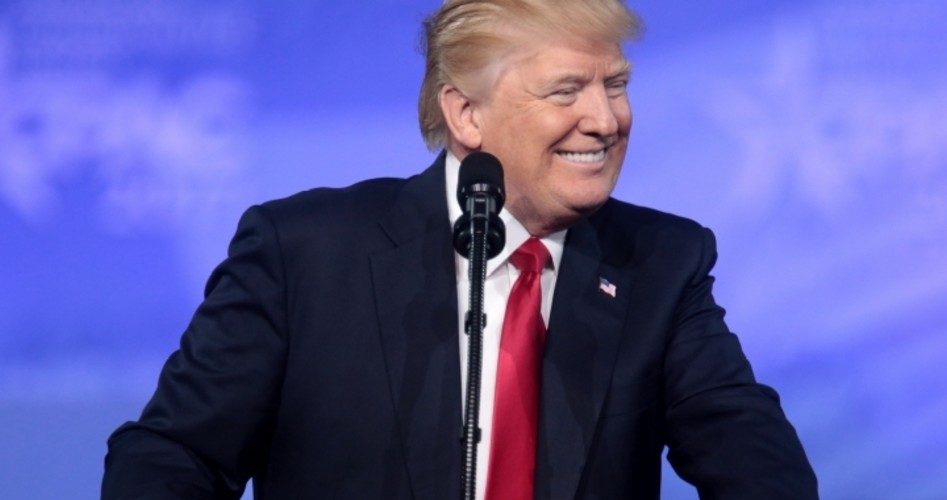
With the Senate confirmation of Judge Cory Wilson to the Fifth Circuit Court of Appeals on Wednesday, the president has now successfully appointed 200 judicial nominees to the federal bench. As CNN legal analyst Jeffrey Toobin put it, “Judicial confirmations may be President Trump’s most important legacy. They will shape the nation’s laws on abortion, LGBT rights, voting rights, and many other issues long after Trump leaves office.”
Senate Majority Leader Mitch McConnell, whose stated objective is “to leave no vacancy behind,” celebrated Wilson’s confirmation: “Following number 200, when we depart this chamber today, there will not be a single circuit court vacancy anywhere in the nation for the first time in at least 40 years.”
All of this was intentional from the start. When Donald Trump accepted his party’s nomination for president back in 2016, he promised “to appoint justices to the United States Supreme Court who will uphold our laws and our Constitution. The replacement of our beloved Justice Scalia will be a person of similar views, principles, and judicial philosophy. This will be one of the most important issues decided by this election.”
And just what was Scalia’s “judicial philosophy”? He called it “originalism”: “The Constitution that I interpret and apply is not living but dead, or as I prefer to call it, enduring. It means today not what current society, much less the court, thinks it ought to mean, but what it meant when it was adopted.”
Scalia subscribed to the “original meaning theory,” which holds that interpretation of the Constitution should be based on what reasonable people living at the time it was written thought it meant.
This is a far cry from the “living document” theory, which holds that the Constitution is malleable and subject to reinterpretation depending on changes in the culture.
Most important are the circuit-court judgeships, where most of the opinions that shape the future are made. And Trump, as Carl Tobias, a law professor at the University of Richmond School of Law, said, “has shifted the makeup of three circuits from a majority of judges nominated by Democrats to a majority nominated by Republicans.”
Especially notable has been the shift of the once-reliably liberal Ninth Circuit. The largest of the nation’s 13 courts of appeal with 29 active judges, it held an 11-seat advantage for Democrats before Trump’s inauguration. Since then, that advantage has been whittled down to just three.
“This is a dramatic, dramatic shift,” said Carrie Severino, chief counsel of the conservative group Judicial Crisis Network. While Democrat-appointed judges still outnumber Republican-appointed ones 16-13, “It just makes it statistically a lot more likely nowadays [that] you have a chance.”
In recent months, that court has issued rulings hewing much more closely to the original intent of the Founders, including a refusal to block Trump’s decision to withhold financial grants from groups, such as Planned Parenthood, that tout abortion services. It upheld his efforts to withhold federal (taxpayer) dollars from localities where local law enforcement refused to cooperate with federal immigration officials (so-called sanctuary cities). The court also lifted an injunction against Trump’s asylum policy requiring migrants seeking asylum in the United States to wait in Mexico while their claims were processed.
Severino was ecstatic: “That type of an outcome would have been unheard of before Trump’s nominees. The 9th Circuit was known where any liberal organization or cause could go for an easy win.”
Trump’s legacy “will last for generations,” said David McIntosh, a co-founder of the Federalist Society, which has vetted Trump’s nominees. “It’s one of the most, if not the most, significant achievements of the president.”
Roger Pilon, a member of the Federalist Society and a constitutional scholar at the Cato Institute, said that Trump’s nominees view the Constitution as “a document of law” and not “a political document and empty vessel to be filled by transient majorities.”
It’s a war of competing ideologies, said Pilon: “We are today in a world of two fundamentally different conceptions of the Constitution, and the people that Trump has been nominating … are deeply informed about this contrast. They stand almost entirely on one side of it.… That’s why the battle has been so vicious.”
That battle rages over issues such as gun control, immigration, healthcare, gay rights, voting rights, and so on. Unheralded, however, is the battle over the administrative state.
One of the most important principles underlying many rulings is the “Chevron deference,” the doctrine that judicial deference is given to the actions of unelected administrative agencies merely because they might have special technical expertise in a particular area. This has allowed the administrative state — the Fourth Branch of government — to expand wildly, often transgressing limitations of the Constitution and the desires of the citizenry.
Pilon said one of the goals of nominating “originalist” judges to the federal bench is “to start rolling back the modern administrative state, the executive state.” This could include welfare-state schemes implemented under President Roosevelt’s New Deal, such as Social Security, and later, Medicare.
There’s much work still to be done. More than 70 Federal District Court vacancies remain for Trump and McConnell to fill. Many of them could be filled during Trump’s second term if he is granted the opportunity.
Image: Gage Skidmore/Wikimedia Commons
An Ivy League graduate and former investment advisor, Bob is a regular contributor to The New American, writing primarily on economics and politics. He can be reached at [email protected].



